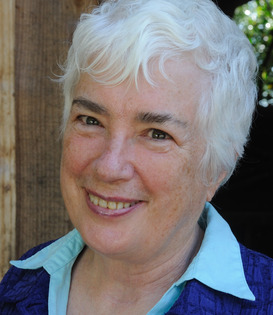PH.D. – Penn State University, Professor Emerita
Basima Farhat is the host.
Originally aired on Tuesday, March 22, 2011– It’s a great show!
Her doctorates in sociology and education both come from University of California, Berkeley, where Kathleen Barry currently resides. Prof Emerita of Penn State University and Brandeis University, she has been a professor at a university for twenty years. In addition to being a Distinguished Professor at numerous universities, she received a Fulbright Diploma to Ireland but was an decided to invite scholar just at École des hautes études en scientific sociales in Paris. She has written five books and is a well-known lecturer in the United States and abroad as a feminist and human rights activist.
With her groundbreaking 1979 book FEMALE SEXUAL SLAVERY, sociologist Kathleen Barry set a new standard for the study of female sex slavery. The publication of this book sparked a new wave of activism against human trafficking around the world. She reframed sex trafficking as a human rights violation, and as a result, a Coalition Against Crimes against Women, a United Nations nongovernmental organisation, was founded with her. In addition to her book and activism, she is featured in Not a Love Story, a popular Canadian film about pornography.

New York University Press published her novel, PROSTITUTION OF SEXUALITY: Worldwide Mistreatment of Women, which includes a new international norms against sex trafficking she developed in partnership with UNESCO. State laws on prostitution throughout Sweden and Iceland, among others, have adopted a law making sexual abuse a human rights violation. One of Marie-hundred Claire’s women who most influenced history for women, she earned an International Lifetime Achievement from Penn State University as just a result of her work on this issue.
As a biographer and creator of SUSAN B. ANTHONY: A Book on the subject of a Singular Feminist, she combined her feminist activism with her compassionate writing style. “One Woman, One Vote” and “Not for Ourself Feel lonely: The Tale of Elizabeth Cady Stanton and Susan B. Anthony” are two of the television shows in which she is featured.
Women’s Research Program collaborator Kathleen Barry first met Vietnamese women in 1991 while working on an international project. Vietnamese Women in Transition, an edited collection of essays by the author, documents a momentous shift in women’s status in Vietnam, both for the better and for the worse. Since the end of the US war in Vietnam, the Research centre of Social Research in Ho Chi Minh City has published the first Vietnamese-language book on American-Vietnamese social science collaboration.
Unmaking War, Going to remake Men: How Compassion Can Change Our Politics, Military, and Ourself by Kathleen Barry is the title of her new book. An examination of the role of masculinity as well as the military in preparing men for killing is presented in this book, which also wants to introduce innovative techniques to global peace and a fresh maleness that is already being formed.
Currently, she’s working on THE Unexpected Individuality, Women, Identity and Spirit, a new book about single women and spontaneity. Her next book will focus on the experiences of 3 generations of people during the Problems in Northern Ireland.
Understanding War, Remaking Men: Additional Information:
Kathleen Barry was on a beach when she happened upon a death that was the result of an accident. Why do we value people’s lives in everyday life but accept the murder in war as inevitable?’ she wondered after seeing how empathy brought together the members of the public – strangers till that moment – in a shared human consciousness.
Kathleen Barry’s Unmaking War, Recreating Men examines the experiences of soldiers through an empathy politics. Military training drives men to kill without remorse or thought, resulting in both trauma and the loss of their own souls. She reveals this by showing how men’s lives are made disposable for combat. On those who have been invaded and occupied, she uses her politicians of empathy to illuminate their experiences and demonstrate how resistance has grown among them.
Moreover, what about those in charge of the country’s government and those who wage war? President George W. Bush was inaugurated, Israeli Prime Minister Ariel Sharon had become Prime Minister, and Bin laden had become the de facto leader of the global terrorist network in 2001, making it a watershed year for the world. Unmaking War, Recreating Men exposes a common psychopathy of those who are driven to ongoing conflict, first creating enemies, then labelling them as terrorist groups or infidels.
‘What will it take to end war?’ asks Kathleen Barry. She examines Costa Rica’s demilitarised status and contrasts it with the country’s high rate of sexual violence. Costa Rica claims to be a peaceful country. Afterwards, she turns to the pressing question of how men can reshape their masculinity and reshape their lives. She draws on the male experience who’ve already resisted war and converted their lifestyles into a fresh kind of humanity; a place where value of becoming human is taken into account.


